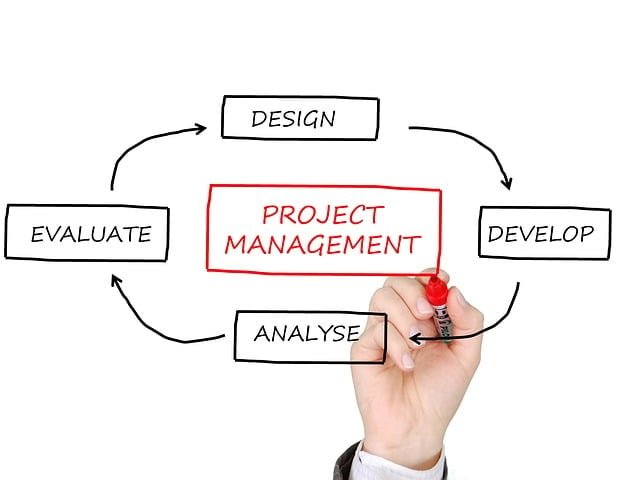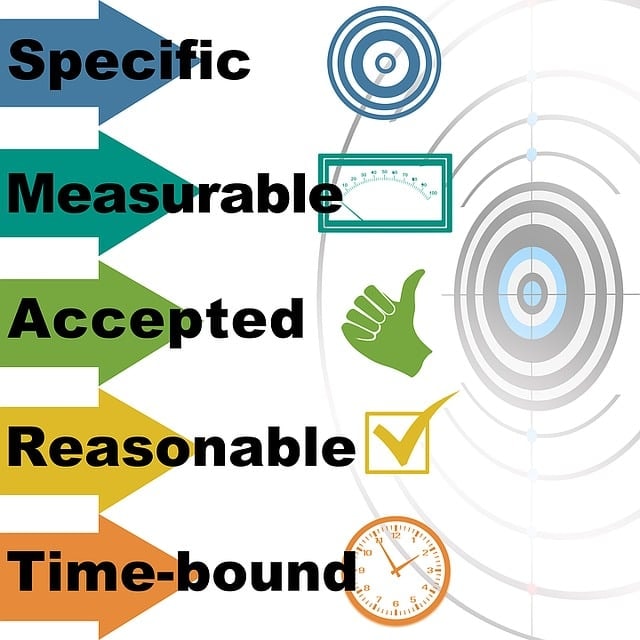Project management has always been a vital component in driving success across industries. However, as we venture into 2024 and beyond, the principles of project management are evolving to keep pace with changing technologies, methodologies, and work environments. Project managers are at the heart of this evolution, ensuring that projects are delivered on time, within scope, and on budget. The Project Management Institute (PMI) continues to provide critical guidance, but project managers must adapt their approaches to meet the needs of modern projects. In this article, we will explore the main project management principles that will shape success in 2024 and beyond, focusing on everything from project objectives and risk management to communication and stakeholder engagement.
Understanding the Basic Principles of Project Management
At the core of successful project management are several basic principles that guide project managers through the life cycle of a project. These principles serve as the foundation for achieving project success, whether you’re managing large projects or smaller, more targeted initiatives.
The first of these principles is the importance of clear project objectives. Establishing well-defined project goals is crucial for keeping the entire team aligned and on the same page. These objectives should be specific, measurable, achievable, relevant, and time-bound (SMART) to ensure that the project team can effectively manage projects toward successful completion.

Another fundamental principle is the concept of a temporary endeavor. Every project, by definition, is temporary—it has a defined start and end. This distinguishes project management from other ongoing business activities. With this in mind, project managers must focus on the project life cycle, which typically includes the initiation, planning, execution, monitoring, and closing phases.
Each of these phases requires careful attention to detail to ensure the project progresses smoothly and that the project’s goals are met.
A critical component of the project management process is project scope management. This involves clearly defining what is and is not included in the project. Without a well-defined scope, the risk of scope creep—where additional tasks or requirements are added without proper approval—can threaten the project’s success. A clear scope helps keep the project team focused and ensures that resources are allocated efficiently.

Another principle that remains a cornerstone of project management is risk management. Identifying, assessing, and managing risks is essential to prevent potential problems from derailing the project. Successful project managers understand that risks are inevitable, but with proactive planning, they can mitigate these risks and keep the project on track. This includes setting up a risk management plan during the planning phase, regularly updating it, and ensuring that all team members are aware of potential risks and the strategies to address them.
The Role of Communication in Project Success
Effective communication is at the heart of every successful project. Team communication ensures that everyone is on the same page and aware of the project’s goals, progress, and potential challenges. A well-defined communication plan is essential for keeping all stakeholders informed throughout the project life cycle. This includes regular updates to the project sponsor, project team, and other stakeholders. Communication channels must be open, transparent, and consistent to prevent misunderstandings that could impact the project’s success.

Project managers should focus on fostering communication not just within the project team but also with all project stakeholders. This includes the project sponsor, other team members, and any external partners or vendors involved in the project. Regular updates, meetings, and reports help keep everyone informed of the project’s progress and any potential issues. By maintaining strong communication channels, project managers can ensure that any problems are identified and addressed early, before they become major roadblocks.
Modern project management software offers valuable tools for facilitating communication. These tools allow for real-time collaboration, tracking of project activities, and sharing of important documents. Whether using Gantt charts to track project schedules, Kanban boards to manage workflows, or other tools to monitor project progress, project managers can leverage technology to enhance communication and keep the entire team aligned.
The Importance of Planning in Project Management
Planning is perhaps the most critical phase of any project. The planning phase is where project managers lay the groundwork for the entire project, creating a project plan that outlines the scope, schedule, budget, and resources needed to achieve the project’s goals.
Effective planning requires a deep understanding of the project’s objectives and a clear strategy for how to achieve them.
During the planning phase, project managers must work with the project sponsor and other stakeholders to define the project charter. This document serves as the official authorization for the project and outlines the project’s objectives, scope, deliverables, and stakeholders. It is essential that the project charter is comprehensive and approved by all key stakeholders before moving forward with the project.

Another key component of the planning phase is the creation of a work breakdown structure (WBS). The WBS is a hierarchical decomposition of the project into smaller, more manageable components known as work packages. By breaking the project down into these smaller tasks, project managers can more easily assign responsibilities, track progress, and ensure that all project activities are completed on time.
The critical path method (CPM) is another important tool in the planning phase. CPM helps project managers identify the sequence of tasks that are critical to the project’s completion. By understanding the critical path, project managers can focus on the activities that are most likely to impact the project schedule and ensure that any delays are addressed promptly.
Setting milestones is also crucial during the planning phase. Milestones represent significant points in the project’s timeline, such as the completion of key deliverables or phases. These milestones help keep the project on track by providing clear goals for the team to work toward. By breaking the project into smaller, achievable goals, project managers can maintain momentum and ensure steady progress toward the final project completion.
Managing Resources and Budget
Resource management is a vital aspect of project management. Ensuring that the right resources are available when needed is essential for keeping the project on track. This includes managing both human resources—such as the project team and other team members—and material resources, such as equipment, software, and facilities.
Budget management is closely tied to resource management. Project managers must create a detailed project budget during the planning phase and monitor it throughout the project life cycle. This budget should account for all project expenses, including labor, materials, and any contingency funds for unexpected costs. By keeping a close eye on the budget, project managers can ensure that the project remains financially viable and delivers the expected company benefit.

In addition to managing resources and budgets, project managers must also focus on the project schedule. This involves creating a detailed timeline for all project activities and ensuring that tasks are completed on time. Tools such as Gantt charts and Kanban boards can help project managers keep track of the schedule and identify any potential delays before they become major issues.
Execution, Monitoring, and Closing: Bringing the Project to Completion
Once the planning phase is complete, the project moves into the execution phase. This is where the project team begins to carry out the project activities defined in the project plan.
During this phase, the project manager’s role shifts to overseeing the work, managing resources, and ensuring that the project stays on track. Successful project managers are proactive during this phase, continuously monitoring progress and addressing any issues that arise.
Project progress should be regularly monitored to ensure that the project is moving toward its goals. This involves tracking key performance indicators (KPIs) and ensuring that the project is meeting its milestones. Any deviations from the plan should be addressed promptly to prevent them from impacting the overall project timeline.

The closing phase marks the official completion of the project. During this phase, the project manager ensures that all deliverables have been met, the project sponsor has signed off on the final product, and any remaining tasks—such as documentation or final payments—are completed. Project completion also involves conducting a post-project review to assess what went well and what could be improved for future projects.
Leveraging the Right Tools for Project Success
In 2024 and beyond, the use of technology in project management will continue to play a crucial role in ensuring project success. Project management software has become indispensable for managing large projects and ensuring that all aspects of the project are properly tracked and documented.
Tools like Kanban boards, Gantt charts, and real-time collaboration platforms allow project managers to keep the entire team aligned and ensure that everyone is working toward the same project goals.
Choosing the right tools is essential for managing projects effectively. Whether it’s tracking project requirements, managing risks, or keeping stakeholders informed, project managers need to leverage technology to enhance their ability to deliver successful projects.
The right tools can make the difference between a good project and a great one, helping to streamline processes, improve communication, and ensure that the project stays on track from start to finish.
Myth Busting: Debunking Common Misconceptions About Project Management
Project management can be a complex field, and with that complexity often comes misunderstanding. To help you navigate the intricacies of successful project management, we’re introducing a myth-busting segment that tackles some of the most common misconceptions.
By shedding light on these myths, we aim to provide clarity and enhance your understanding of effective project management practices.
Myth 1: “Project Planning Is Just About Creating a Schedule”
One of the most widespread myths is that project planning only involves creating a timeline or schedule for the project. While developing a schedule is indeed an important part of project planning, it’s just one piece of a much larger puzzle.
Project plans encompass far more than dates and deadlines—they involve defining the project goal, setting milestones, allocating resources, managing risks, and establishing a framework for communication.

Effective project planning also includes identifying the three basic components of every project: scope, time, and cost. By addressing these elements early on, project managers set clear expectations for the entire team and create a roadmap that guides project activities from start to finish.
Thus, project planning is a comprehensive process that ensures that every team member knows their responsibilities and that top performers can focus on achieving the project’s objectives.
Myth 2: “Once the Project Plan Is Set, It Can’t Be Changed”
Another common misconception is that once the project plan is finalized, it’s set in stone. This belief can lead to rigidity, which may hinder a project’s ability to adapt to changes in scope, resources, or stakeholder needs. In reality, project management requires flexibility.
Projects are dynamic by nature, and circumstances often change—whether it’s due to shifting priorities, unforeseen challenges, or new information. Successful project managers understand the importance of keeping track of project progress and are prepared to make project decisions when necessary.

This may involve revisiting the basic components of the plan, re-allocating resources, or adjusting timelines to stay aligned with the project goal. Flexibility allows the project team to navigate challenges more effectively and ensure the final deliverables meet stakeholder expectations.
Myth 3: “Setting Milestones Is the Only Way to Measure Progress”
While setting milestones is a valuable way to track a project’s progress, relying solely on milestones can be misleading. This myth suggests that as long as milestones are being hit, the project is on track. However, focusing exclusively on milestones can cause project managers to overlook other crucial indicators of progress.
In reality, successful project management involves more than just reaching predefined checkpoints. Keeping track of day-to-day tasks, ensuring that resources are being used efficiently, and regularly communicating with stakeholders are all vital aspects of monitoring project success. Each team member must remain responsible for their part in the project, and consistent oversight ensures that minor issues are identified and addressed before they become major problems. A comprehensive approach to tracking progress, beyond just milestones, ensures that the project stays aligned with its goals and delivers the desired results.
By debunking these common myths, we hope to provide a more nuanced understanding of project management. From flexible planning to continuous progress tracking, successful project management is about balancing structure with adaptability to guide the team toward project completion.
Conclusion: Project Management Principles for Future Success
The principles of project management are evolving as we move into 2024 and beyond, but the core fundamentals remain the same. Successful project managers must focus on clear objectives, effective communication, thorough planning, and proactive risk management to achieve project success.

By leveraging the right tools and staying aligned with the needs of their stakeholders, project managers can continue to deliver successful projects that provide lasting value.
As the project management landscape continues to change, staying informed and adaptable will be key to thriving in this dynamic field. Project managers who embrace these principles and remain open to new ideas and technologies will be well-positioned to lead their teams to success, no matter what challenges the future may hold.
